Nasur Yurusbaev makes a film about the first Tatar book published in Germany
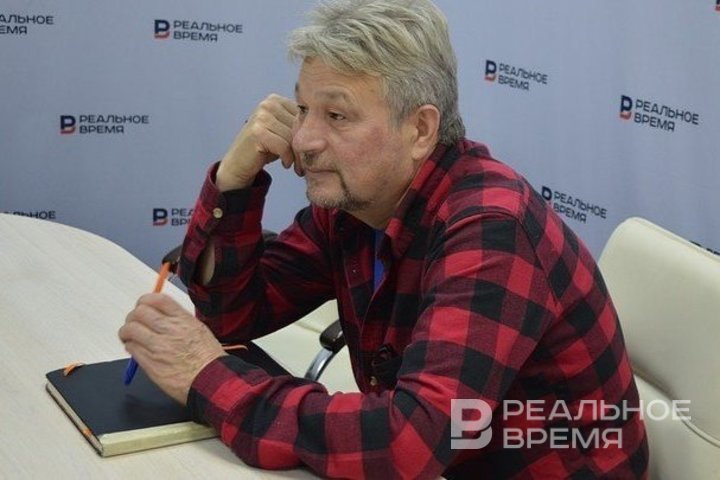
A director of Russian origin from Germany, Nasur Yurusbaev, presented the film Berenche basma tatar kitaby ezlärennän / In the Footsteps of the First Printed Tatar Book (0+) in the Chamber Hall of the new building of the Kamal Theatre. The film is dedicated to the centenary of the renowned Tatar scholar Abrar Karimullin. However, it is not a biography of the historian, bibliographer, or literary critic. Yurusbaev told the story of the book by Hieronymus Megiser, TheBasic Rules of the Turkic Language in Four Books, which can be considered the first printed Tatar book.
Apologist of the Tatar Book
A native of the Sabinsky District, Abrar Karimullin took part in the Great Patriotic War from 1943, serving not only on the Western front but also in the East. After returning from the front, he graduated from the Tatar department of the Faculty of History and Philology at Kazan State University and began working at the Scientific Library of the KSU, where he eventually became deputy director for research. He then worked at the Ibragimov Institute of Language, Literature and Art.
One of Karimullin’s achievements was that he secured permission to recatalogue Tatar books written in Arabic script based on the Cyrillic alphabet. In 1991, for his works At the Origins of the Tatar Book, The Tatar Book of Post-Reform Russia, and The Tatar Book of the 20th Century, he was awarded the Tukay Prize.
In the republic, many enjoy quoting his polemical work The Tatars: Ethnos and Ethnonym. His book Proto-Turks and the Indians of America: In the Footsteps of One Hypothesis, in which the author explored the theory that the Native Americans descended from Turkic tribes, was also widely popular.
Karimullin wrote a wide range of diverse studies. Yurusbaev became interested in his book “Yazmysh, yazmysh / Fate, Fate back in his youth, in 1984. The book told the story of how the first Tatar book was published in Germany.
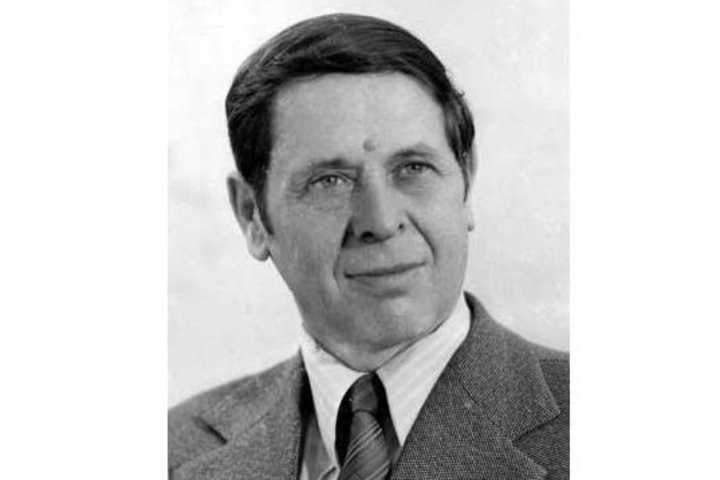
The Chief Tatar of Saxony
Yurusbaev was born in the Perm region. After serving in the army and graduating from the Kazan State University, he moved to Germany in 1988, went through numerous professions, became a cameraman at Saxony Television, and began filming for Gazprom and for Bashkortostan.
In the end, he returned to Russia, bought back his father's house and, notably, made a feature film The Ancestral Home (featuring actors from the Tuymazy Theatre). At the same time, Germany has not let him go entirely. For example, one of Yurusbaev's films, Two Prisoners: Dzavit and Walter, tells the story of former prisoners of war: the Tatar Dzavit Kuzeev and the German Walter Olszewski. He is also known for his film “The Sounds of the Quray over the Seine”, about the participation of Bashkir Cossacks and Tatars in the War of 1812. Another notable work is The Voice of My Father, based on recordings of Tatar prisoners of war from the First World War.
Even at university, Yurusbaev read that the Tatar book was published in Germany. He found it at Leipzig University. The edition of Institutiones linguae Turcicae by the philologist Hieronymus Megiser was published in 1612.
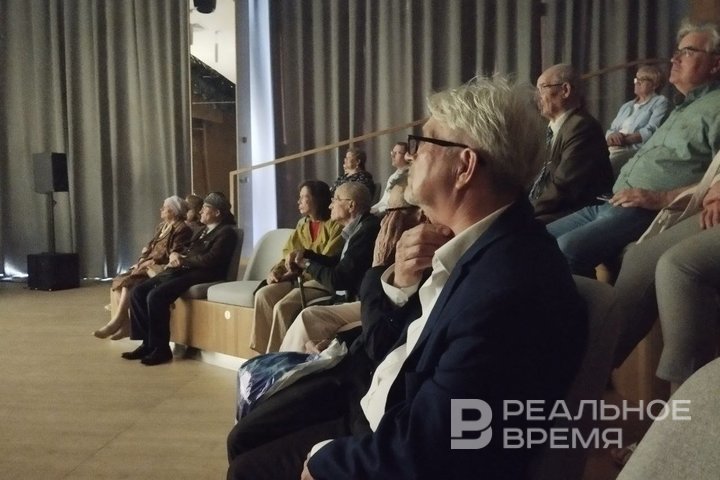
Of course, this book largely consists of Latin words, but a significant part of it is Turkic words. The book is known among advanced linguists, but Turkologists clearly need to refer to it more often. In its third volume, there are: “Various exercises in the Turkic language and 200 Turkic proverbs.” Here is one of them: Yaɳılmas bir Allah / Only God is free from sin.
Megiser himself wrote: “For how beautiful and honourable, lofty and praiseworthy it is, how useful for all aspects of human life, and finally, in peacetime and wartime, at home and on a military campaign — knowledge of other foreign languages is necessary everywhere, but especially in our age, knowledge and understanding of the Turkic language.”
The book Institutiones linguae Turcicae was also published in Kazan, thanks to the Communiqué between the governments of the Republic of Tatarstan and the Free State of Saxony. On our side, it was signed by the first president of Tatarstan, State Counsellor of the republic Mintimer Shaimiev.
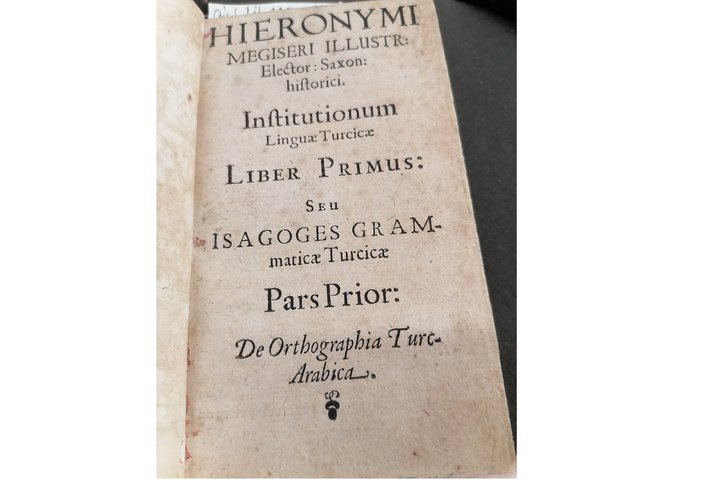
“If some words are unclear — it is all due to our ignorance”
Yurusbaev is filming the 46-minute film in a television format — with a violin crescendo, in which a Tatar melody suddenly emerges. He explains this as a way to keep the most important audience — young people — in suspense. Therefore, even the director-hero’s visits to libraries are illustrated with this lively music.
Alongside the story of the book itself, the film features opinions from Megiser expert Fanuza Nuriyeva, Ute Schneider from the Gutenberg Institute, international university professor Elmira Akhmetova, and poet Rkail Zaidulla.
The opinion of historian Iskander Gilyazov is interesting, as he reflects on the very term “printed book," which, in his view, becomes a book only if it becomes sought after. Writer Vakhit Imamov, meanwhile, says that the language of our ancestors differs greatly from the modern one. This prompted a desire to respond with a remark by Khatip Minnegulov:
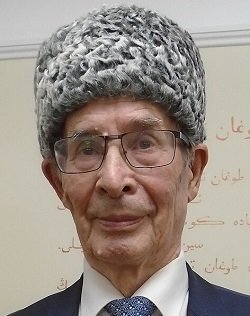
As Yurusbaev explained, his work does not provide a definitive answer to the question of whether Institutiones linguae Turcicae is the first Tatar book. The viewer makes their own decision, as this is a documentary investigation.
He is currently preparing subtitles, and the documentary will be shown on television. It is planned that the film will be presented to students at the Kazan University.
“I have also shown it in Germany. Surprisingly, local scholars understood everything without translation,” the director notes, adding that he has not received a single negative review to date.
The conclusion of his film is that the Tatars were by no means illiterate, as some scholars still try to present the facts. The history of the old printed Tatar book is incredibly long and remains little studied.